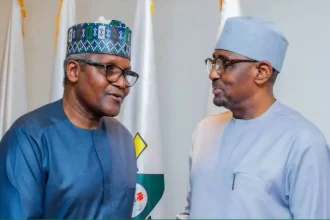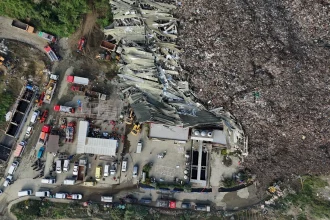The International Criminal Court has called on the United Nations Security Council to assist in arresting six suspects accused of war crimes in Libya.
These suspects are linked to the Al Kaniyat militia, which controlled the town of Tarhuna from 2015 to 2020.
The ICC Prosecutor, Karim Khan, made the appeal on Tuesday during a briefing to the Security Council from Tripoli, Libya. He urged the Council, member states of the ICC, and other nations to help execute the arrest warrants for the suspects.
“These individuals are accused of atrocity crimes, including murder, torture, sexual violence, and rape, with hundreds of victims exhumed from mass graves around Tarhuna since 2020,” Khan stated.
The six suspects named in the warrants are Abdurahem Khalefa Abdurahem Elshgagi, Makhlouf Makhlouf Arhoumah Doumah, Nasser Muhammad Muftah Daou, Mohamed Mohamed Al Salheen Salmi, Abdelbari Ayyad Ramadan Al Shaqaqi, and Fathi Faraj Mohamed Salim Al Zinkal.
Khan highlighted the emotional impact on the families of victims. “One person said that every household in Tarhuna has a victim. The heartbreak and loss were palpable,” he shared.
The Prosecutor emphasised the importance of international cooperation to ensure justice. “Justice and accountability are not only essential for the victims and their families but also for Libya’s future,” he said.
Khan noted progress in investigations into crimes committed between 2014 and 2020 and revealed plans for additional arrest warrants. Some applications, he added, might remain confidential to increase the chances of successful arrests.
The ICC has also strengthened collaboration with Libyan authorities, including the Attorney General, to coordinate investigations. Meetings with over 70 Libyan civil society groups and human rights defenders have further shaped the court’s approach.
“Civil society groups are at the heart of our discussions,” Khan noted.
The situation in Libya was referred to the ICC by the UN Security Council in 2011. Despite the challenges, Khan expressed optimism, saying, “The hopes and expectations of victims must remain at the forefront as we work toward justice.”











